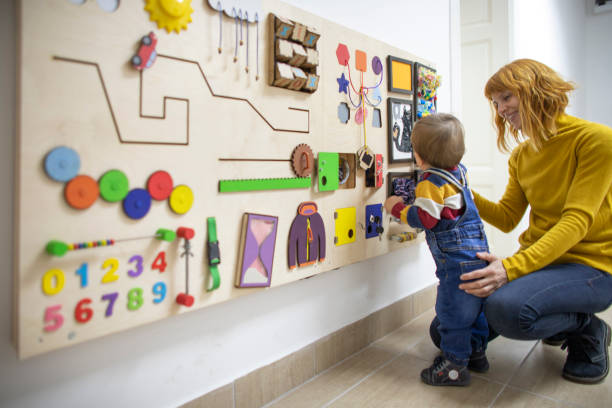
Before inclusion in a general education school setting, children with autism may need to develop certain skills that will help them navigate the classroom and interact with peers and teachers effectively. These skills can vary based on the individual child’s needs, but here are some key areas that can support successful inclusion:
1. Communication Skills
- Verbal Communication: Ability to express basic needs, thoughts, and emotions through spoken language or alternative communication methods (e.g., sign language, communication boards, AAC devices).
- Non-Verbal Communication: Understanding and using body language, facial expressions, and gestures to communicate.
- Social Communication: Initiating and maintaining conversations, turn-taking, and understanding social cues (e.g., tone of voice, eye contact).
2. Social Skills
- Interaction with Peers: Ability to engage with classmates in appropriate ways (e.g., greeting others, joining group activities, sharing toys).
- Understanding Social Norms: Recognizing and following social rules, such as personal space, waiting for a turn, and expressing empathy.
- Friendship Skills: Developing the ability to form and maintain friendships, including understanding reciprocity in relationships.
3. Self-Regulation Skills
- Emotional Regulation: Ability to manage emotional responses in various situations, such as staying calm during transitions or handling frustration without aggression.
- Behavior Management: Learning strategies to cope with overstimulation, anxiety, or other triggers that could lead to disruptive behaviors.
- Impulse Control: Being able to wait, take turns, and resist impulsive actions.
4. Academic Readiness
- Focus and Attention: Ability to stay on task, focus during lessons, and follow simple instructions.
- Problem-Solving Skills: Ability to understand and solve simple problems (e.g., figuring out how to complete a task or asking for help when needed).
- Basic Academics: Familiarity with basic concepts (numbers, letters, shapes) and academic routines (e.g., sitting at a desk, completing worksheets).
5. Daily Living Skills
- Self-Help Skills: Ability to perform basic daily tasks such as dressing, eating, and using the bathroom independently or with minimal assistance.
- Organization and Time Management: Ability to organize materials (e.g., school supplies, personal items) and follow a structured routine or schedule.
6. Motor Skills
- Fine Motor Skills: Ability to use hands and fingers for tasks such as writing, drawing, cutting, or using tools.
- Gross Motor Skills: Ability to engage in physical activities such as running, jumping, or playing sports, which are important for recess or physical education.
7. Sensory Processing
- Self-Awareness of Sensory Needs: Ability to recognize when sensory sensitivities (e.g., noise, light, touch) affect behavior or comfort levels.
- Coping Mechanisms: Having strategies in place for dealing with sensory overload, such as using noise-canceling headphones, seeking quiet spaces, or using calming activities.
8. Adaptability and Flexibility
- Transitions: Ability to manage transitions between activities, classrooms, or routines, which can be particularly challenging for children with autism.
- Adapting to Change: Learning to cope with changes in routine, unexpected events, or new situations without excessive stress.
9. Peer Relationships
- Peer Mediation: Skills for resolving conflicts with peers and understanding how to ask for help or support when needed.
- Group Participation: Engaging in group activities and collaborating with others in learning or play-based settings.
10. Awareness and Advocacy
- Self-Advocacy: Ability to express one’s needs, such as asking for breaks or accommodations if feeling overwhelmed.
- Autism Awareness: Developing an understanding of their own diagnosis and recognizing how it may impact their behavior and interactions with others.
Additional Support for Inclusion
While these skills are beneficial, children with autism often benefit from:
- Individualized Education Plans (IEPs): Tailored to the child’s needs, outlining specific goals, accommodations, and services.
- Support from Special Education Staff: Assistance from speech therapists, occupational therapists, or behavioral therapists as needed.
- Peer Support: Having a buddy system or trained peer mentors can help ease the transition into a general education setting.
Each child’s path to inclusion will vary depending on their individual strengths and challenges. Providing early intervention and ongoing support can ensure that children with autism have the tools they need for a successful school experience.